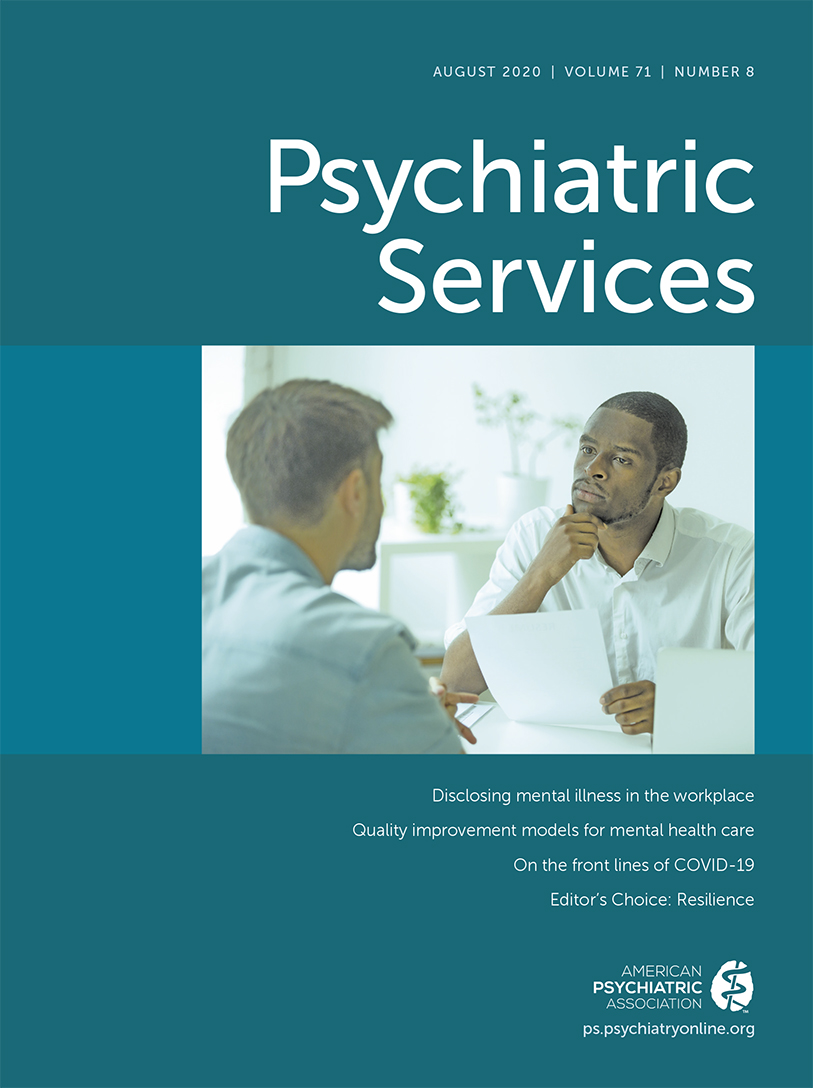Resilience
This Editor’s Choice collection was published online in June 2020. To review all collections, visit the Editor’s Choice section of ps.psychiatryonline.org.
Resilience is a dynamic process of positive adaptation in the face of adversity. When individuals face major stressors due to events such as natural disasters, trauma, public health crises, and now, coronavirus disease 2019 (COVID-19), resilience is tested on an individual, organizational, and societal level. But resilience is not stagnant. Appropriate guidance, access to resources, and early intervention can strengthen resilience and lead to improved mental health outcomes. COVID-19 presents unique challenges in that social connectedness—a critical ingredient that bolsters resilience—may be difficult as people engage in physical distancing. As the global community establishes a “new normal,” the rich literature on resilience can guide providers and patients through this adjustment.
This Editor’s Choice collection highlights the importance of fostering resilience to prevent poor mental health outcomes that result from adverse responses to crisis as well as long-term stressors. The first set of articles describes the impacts of disasters, the utility of interventions such as short-term cognitive-behavioral therapy, the importance of engaging community stakeholders, and the use of a collaborative approach to manage the aftermath of trauma. The next section addresses the critical importance of fostering resilience in young people who face adverse childhood experiences or serious mental illness, as well as the need to engage policy makers on these issues. Finally, the collection examines how resilience relates to health care worker well-being and includes a historical perspective on the roots of the term resilience as it relates to burnout. Particularly salient to the current surge in telepsychiatry that has resulted from the COVID-19 pandemic, one article describes the ability of telepsychiatry to improve psychiatrists’ well-being while running the risk of contributing to burnout through social and professional isolation. As we advance through the challenges presented by COVID-19, this collection highlights the collaborative approach needed to meet the mental health needs of our patients and our professional communities.
Disaster response
Integrated Care: Meeting Mental Health Needs After the Gulf Oil Spill
Osofsky HJ, Osofsky JD, Wells JH, et al.
Psychiatr Serv 2014; 65:280–283
Effectiveness RCT of a CBT Intervention for Youths Who Lost Parents in the Sichuan, China, Earthquake
Chen Y, Shen WW, Gao K, et al.
Psychiatr Serv 2014; 65:259–262
10.1176/appi.ps.201200470
Mental Health at the Table During Community Crises
McLean A
Psychiatr Serv 2019; 70:166–167
https://doi.org/10.1176/appi.ps.201800507
Book Review: Intervention and Resilience After Mass Trauma
Stoddard FJ Jr.
Psychiatr Serv 2009; 60:997–998
https://doi.org/10.1176/ps.2009.60.7.997
Young people facing adversity
Significance of Self-Reported Drug or Alcohol Use Among Inner-City Teenagers
Lindsey RL, Weist MD, Smith-Lebeau L, et al.
Psychiatr Serv 2004; 55:824–826
https://doi.org/10.1176/appi.ps.55.7.824
Positive Changes Experienced After a First Episode of Psychosis: A Systematic Review
Jordan G, MacDonald K, Pope MA, et al.
Psychiatr Serv 2018; 69:84–99
https://doi.org/10.1176/appi.ps.201600586
State Legislators’ Opinions About Adverse Childhood Experiences as Risk Factors for Adult Behavioral Health Conditions
Purtle J, Lê-Scherban F, Wang X, et al.
Psychiatr Serv 2019; 70:894–900
https://doi.org/10.1176/appi.ps.201900175
Well-being of health care workers
Prevalence of Psychiatric Disorders Among Toronto Hospital Workers One to Two Years After the SARS Outbreak
Lancee WJ, Maunder RG, Goldbloom DS
Psychiatr Serv 2008; 59:91–95
https://doi.org/10.1176/ps.2008.59.1.91
Telepsychiatry: Implications for Psychiatrist Burnout and Well-Being
Vogt EL, Mahmoud H, Elhaj O
Psychiatr Serv 2019; 70:422–424
https://doi.org/10.1176/appi.ps.201800465
The Maryland Resilience Breakthrough Series Collaborative: A Quality Improvement Initiative for Children’s Mental Health Services Providers
Backer PM, Kiser LJ, Gillham JE, et al.
Psychiatr Serv 2015; 66:778–780
https://doi.org/10.1176/appi.ps.201500036
Resilience, Resistance: A Commentary on the Historical Origins of Resilience and Wellness Initiatives
Winston H, Fage B
Psychiatr Serv 2019; 70:737–739
https://doi.org/10.1176/appi.ps.201800477
Resilience: Management for the Disease of Physician Burnout
Aggarwal R, Kim K
Psychiatr Serv 2019; 70:1181
https://doi.org/10.1176/appi.ps.701102
Resilience: Management for the Disease of Physician Burnout: In Reply
Fage B, Winston H
Psychiatr Serv 2019; 70:1181–1182



